

Auckland Council's long-term plan is open for public feedback until the end of the month.
Photo/ RNZ
What the long-term plan means for Aucklanders: Part 1
Rising rates, council cut-backs and plugging a fuel-tax hole. In part one of a two part series, Local Democracy Reporter Alka Prasad breaks down what the long-term plan is all about, and why it matters to residents.





Inked across lands: How Pacific tattoo art is thriving in Germany


Pacific pride on the big stage: ‘Chief of War’ wins Best Ensemble at the Spirit Awards



Inked across lands: How Pacific tattoo art is thriving in Germany
Auckland Council’s long-term plan (LTP) sets out what goals Auckland Council wants to achieve in the next 10 years, how they will do it and how they’re going to pay for it.
The plan goes to review every three years and this year’s review will decide the direction Auckland Council goes in from 2024 to 2034.
A majority of Auckland councillors agreed on Mayor Wayne’s Brown’s proposed LTP two weeks ago and Aucklanders can now give feedback on the plan.
Here are some of the key issues Brown wants to tackle in the LTP:
1. Making money – rates
The council needs to maximise how it earns income and the best way to do this is by putting up rates.
Rates is one of the main ways for Auckland Council to make money, so the current LTP proposal suggests increasing rates to cover rising costs.
The lowest proposed rates rise would be a 5.5 per cent increase next year, dropping to 3.5 per cent in 2026 and 2027.
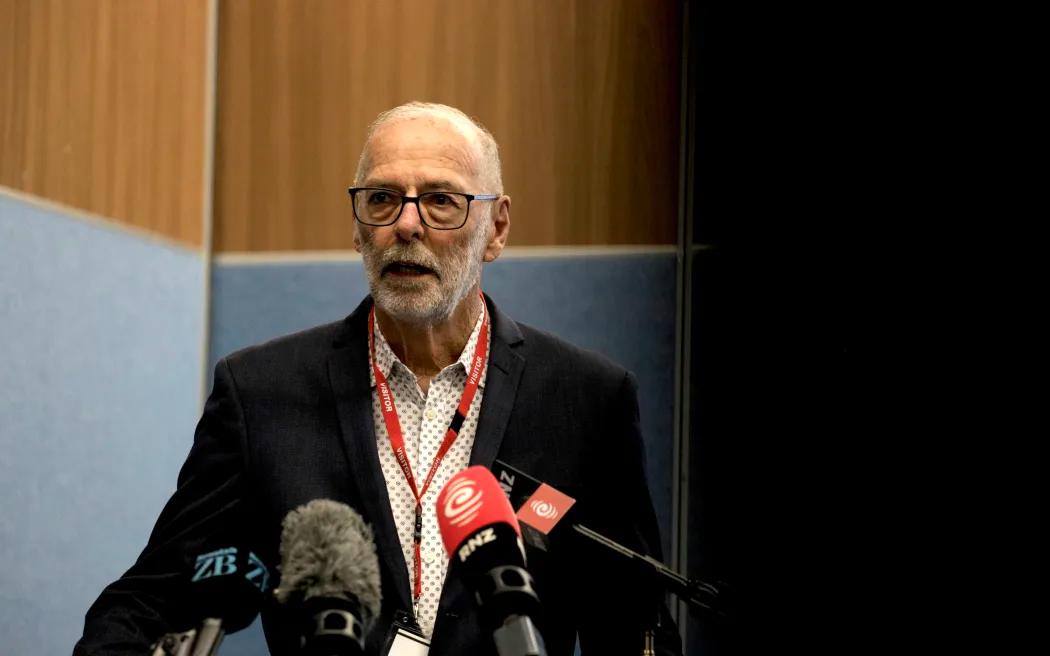
Auckland Mayor Wayne Brown says rates rises are essential to cover the Council's rising costs.
The medium proposed rise would see rates go up by 7.5 per cent next year, then drop to 3.5 per cent in 2026 and up to 8 per cent in 2027.
The highest rates rise would mean rates go up 14 per cent next year, then drop to 10 per cent in 2026 and 2027.
On top of existing rates rises, Brown says water charges need to go up as well, but Brown says they need to be affordable, so he’s planning to ask the Government to chip in as well.
“I will continue to advocate to Government an alternative model that enables balance sheet separation, so Watercare can make necessary investment without big price increases,” Brown says.
The impact of the “‘middle"’ proposal would see the average household rates bill rise from $3560 to $3827, and water bills from $1340 to $1686 - a combined total of $613.
2. Losing fuel tax income - "Cone rangers" and increased parking fines
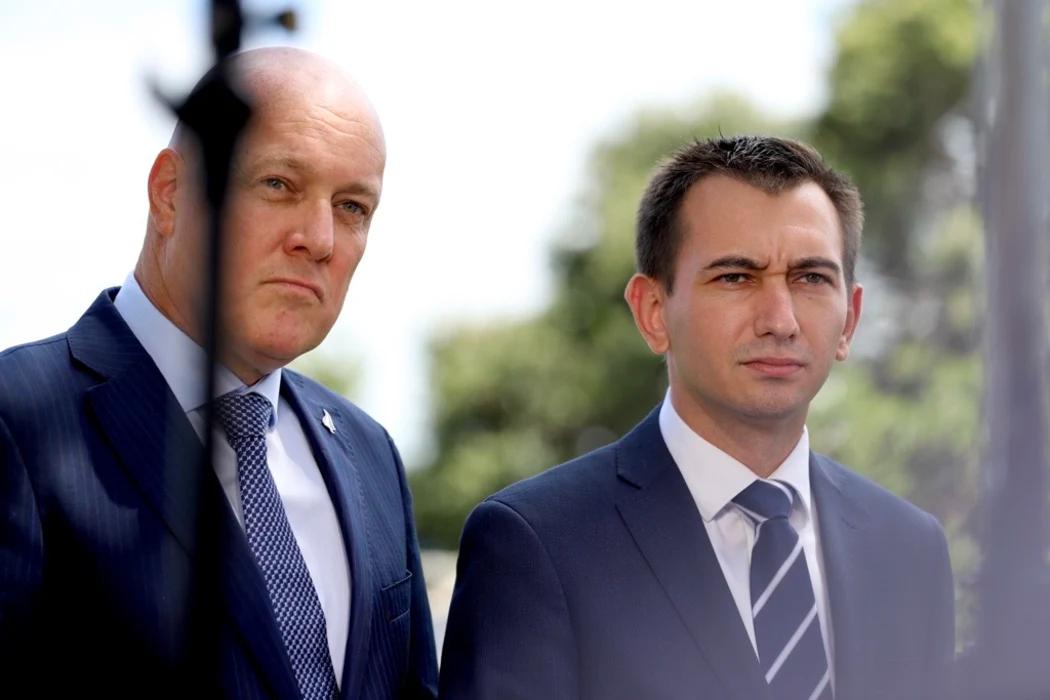
Last month, Transport Minister Simeon Brown announced an end to the regional fuel tax set to take effect at the end of June.
The mayor says the Government’s decision to shut down the regional fuel tax means there won't be funding for any new road projects until they find other ways to pay for them.
That means cutting costs around Auckland’s transport and roading systems and using them as a way to earn more.
To address this shortfall, Brown is proposing:
- Hiring 50 more parking enforcement officers across Auckland to increase parking revenue.
- Cutting the number of traffic cones around Auckland.
- Hiring “cone rangers” to make sure council are not using excessive road cones.
- Getting rid of bus services that are underused.
- Cutting down how often roads are closed and the length of time for roadworks.
- Changing how Auckland Transport (AT) uses media, for example allowing Lotto to advertise on their services.
- Promoting behavioural change through community engagement, public education and marketing.
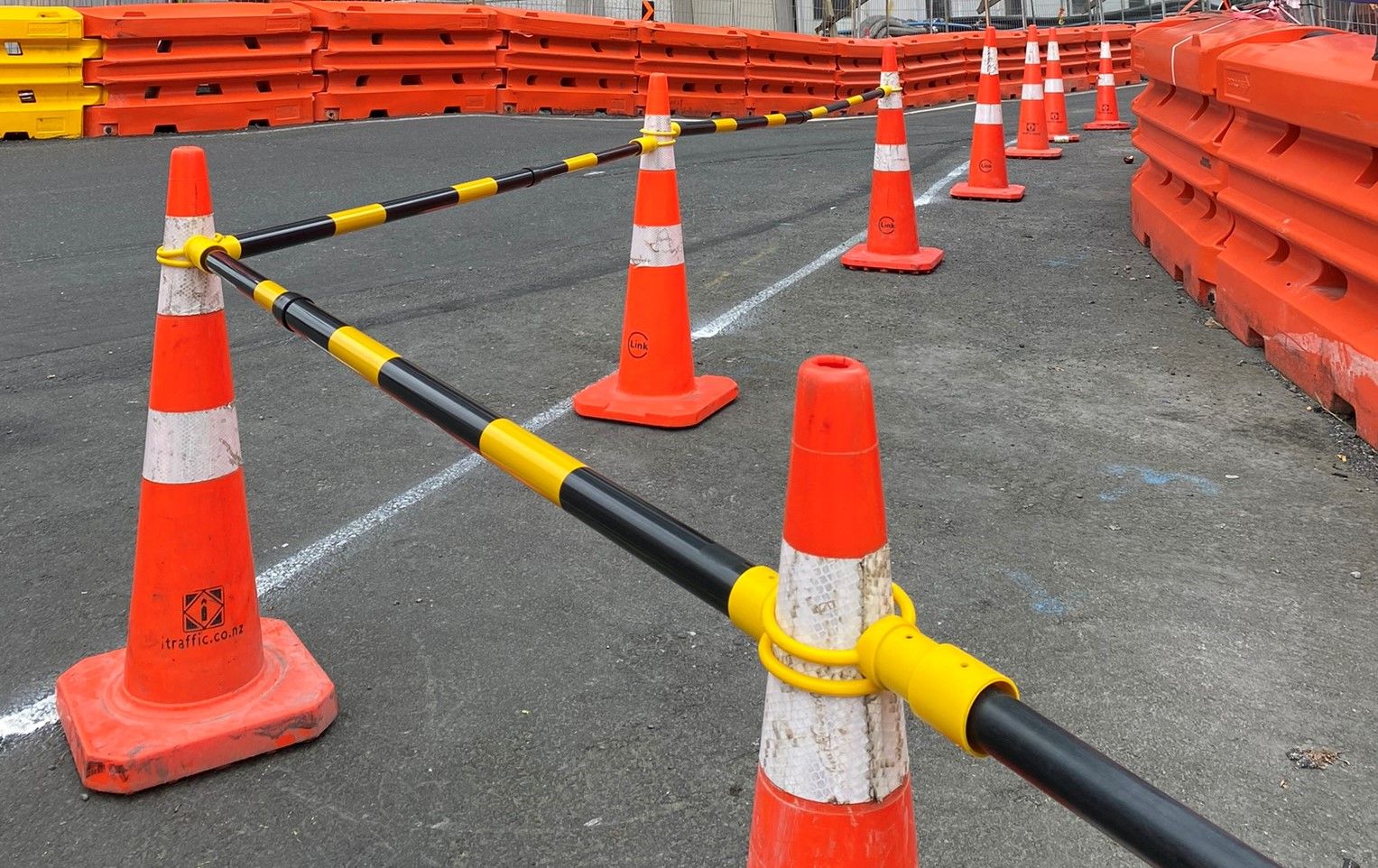
Brown is proposing to slash road cones around Auckland and introducing "cone rangers" for enforcement
3. Cutting debt
In the current LTP proposal, Brown says Auckland Council debt is too high.
Auckland Council uses debt to revenue ratios to measure how much cash they’re borrowing.
That is the amount of debt the council has compared to how much money it's making.
Auckland Council pushed the city’s debt to revenue ratio to 290 per cent in 2021 in response to Covid, but the long-term target was to bring the ratio down to 270 per cent, meaning Auckland Council wouldn’t take on more debt that is over three times as much money it was making.
But because interest rates have been going up over the last couple of years, Auckland Council’s interest costs have risen to $536 million.
Selling a seven per cent stake in Auckland International Airport shares last year was part of a plan to repay some of the rising debt as well but last year’s floods threw a spanner in the works by adding to council’s expenses.
Under Brown’s LTP proposal, Auckland Council’s debt should permanently reduce to 270 per cent of its revenue with a long-term target at 250 per cent.
4. More support for iwi, but only if there is a review
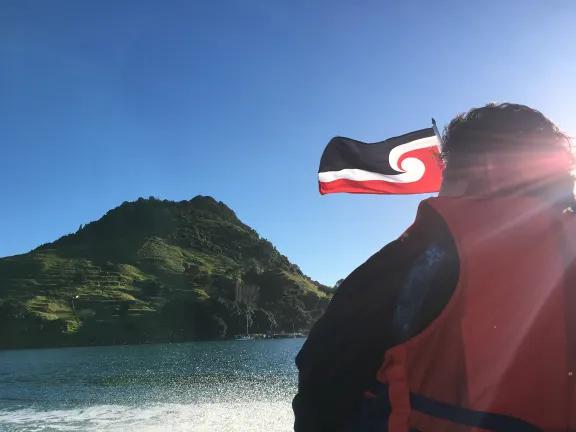
Brown proposed an increase in funding for Māori outcomes if there is a review into how the money is being used
Brown wants to allocate an extra $171m to achieve positive Māori outcomes.
But the increase comes with the condition of a review into how the money is being spent.
In Brown’s LTP proposal, he says, “Simply allocating money to a fund will be ineffective unless Auckland Council actively works as a partner with Māori.”
“We need to leverage the good work that is already happening and identify new opportunities to partner on delivering better outcomes for Māori in Tamaki Makaurau, not just deliver more funding.”
5. Cutting costs
The plan proposes cutting the base level of funding for all Council-controlled organisations (CCOs) for the next three years, except for Watercare and Auckland Transport.
Brown says funding will go up 3.4 per cent ($45m) for the next year and $55m will be set aside to cover storm recovery costs.
But Eke Panuku, who run Auckland Council’s property portfolio, will have to cut costs.
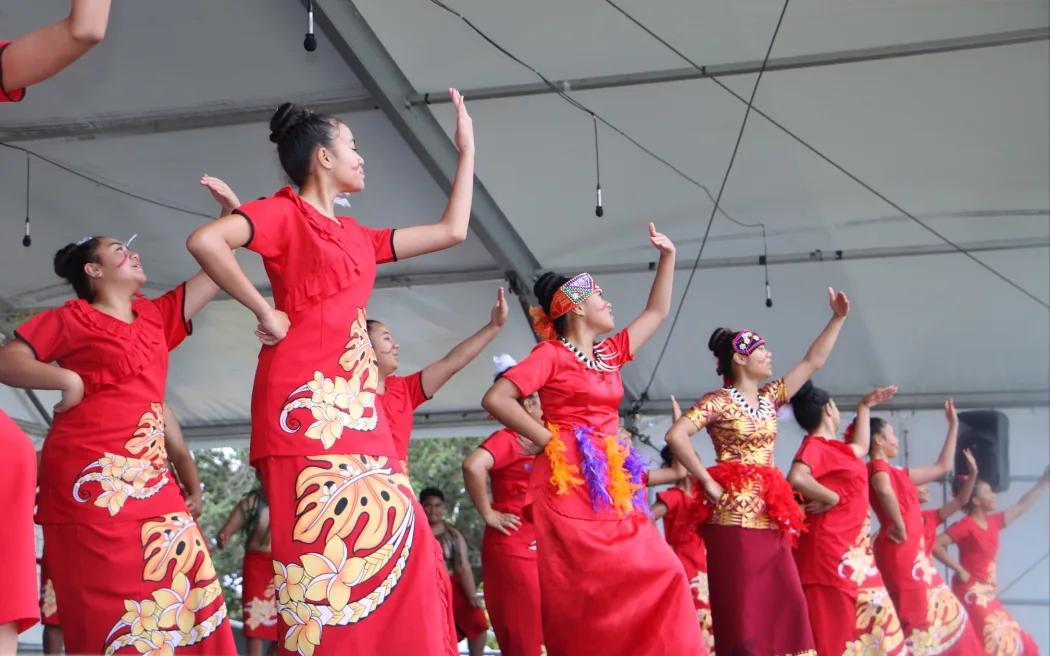
The LTP proposes cutting funding for Eke Panuku and Tātaki Auckland Unlimited, who manage economic development and events across Auckland.
Brown proposes the group will pay for a $5m funding gap with money from Tātaki Auckland Unlimited (TAU) - responsible for Auckland events and economic development portfolio - who are also facing funding cuts.
“I want this gap to be funded from the proceeds of TAU selling the Auckland Film Studio or seek additional government funding.
“However, over the long-term, I maintain my position that these activities should not be primarily funded by general rates, and I want other sustainable sources of revenue to fund it,” Brown says in his proposal.
Brown is also proposing to restore Eke Panuku’s $100m strategic development fund to enable faster regeneration of rundown parts of Auckland.
He says the group should also have enough funding to complete the master planning of port land to be leased out.
Watercare has to maintain its current debt to revenue ratio of 340 per cent and will ask the government to invest in Auckland water infrastructure to “avoid big water price increases for households”.
Putting an end to any new housing projects is also proposed.
Brown says he supports brownfield growth activities funded by the central Government (Kainga Ora), but only if those projects are supported by the Housing Acceleration Fund and Waka Kotahi.
